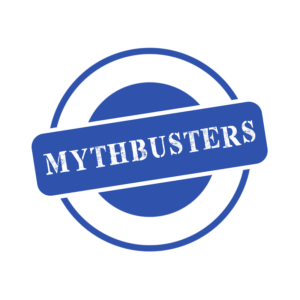
Getting to the Bottom of Local Search
For many business owners, Google can seem like an enigma and is often regarded as a gatekeeper for having success online. For good reason, because on a good day Google operates a highly volatile and complex algorithm that they use to help rank all websites within their database.
With these basic facts in mind, it makes total sense why any perceived change with Google’s ranking system can cause a business owner to stress about their digital marketing efforts. They find themselves racking their brains with questions like “Will this effect how my phone rings?” “Am I less visible now than before?” or “Are my marketing plans still being maximized with this new information in hand?”
Unfortunately, because there are so many questions and so few answers floating around, it’s extremely common for bad information to make its way into the grapevine, especially when it comes to the concept of “Local SEO.” Like many buzzwords before it, it has got business owners everywhere asking if their marketing programs are targeting the things they should be targeting.
Well, you’ve got questions, and we’ve got answers, so today we will be going over some of the most common “Local SEO” myths and frequently asked questions.

There’s a big difference between “SEO” and “Local SEO”
This is the biggest question of them all and any time there is a big question in SEO, you are likely to see people or firms taking advantage of that by using deceitful language. The biggest example of this these days are when a budding “SEO consultant” will reach out and say something to the effect of “Your site is well optimized for SEO, but not “Local SEO”. To help us address this common misconception, and to answer the bigger question at hand, the answer is simply: Philosophically – No, Practically – Kinda.
Let’s break these concepts down to their simplest ideas. What does SEO even mean? Search engine optimization. Let’s focus in on the word “optimization.” If you approach an SEO consultant or a firm that specializes in SEO services, one of the key things they should establish early on is your target goals and audiences. If you are a brick-and-mortar service store that services Hondas and Toyotas only, can you still technically be “optimized” (and I use that term loosely) for BMWs or Mercedes? Sure, but is that really “optimization” if you are being found for a service you don’t or can’t even provide?
The same goes for locations and service areas. If your SEO consultant or team is worth their weight in salt, one of the very first priorities for your digital campaign will be full-sync with current or future business goals. If it doesn’t, then you’re simply not optimized. Now, while there are certainly specific things you would do for a local business over a national e-commerce business in terms of SEO, and vice-versa, the fact is that no amount of meta tags or content tweaks in the world can make up for failing to sync real-business goals and capabilities with the on or off-site SEO strategy.
Ultimately, search engine optimization is entirely specific to the business or website you’re optimizing for and it’s customers. So if you see someone charging extra for “Local SEO” on top of their normal SEO fees, or if you see someone suggest that they are different enough that you have to focus on one-or-the-other, you will now know this is a giant red flag.
The more microsites the better! / The more websites the better!
Some people try to take advantage of a situation where the business owners may not be properly informed. Which is why it has become more common to see firms that aren’t really competing well in search engine optimization to fall back on another similar-sounding service. Specifically, they will offer a service where they build something they might call a “microsite” or a “mini-site” or a “dedicated landing page.” It’s easy to understand why someone might fall for something like this, after all, two websites have got to be better than one, right? This, of course, is not the case.

Google and other search engines thrive on clear-cut and accurate information, including what website you are primarily operating out of. If you send Google and other search engines a signal that you are operating multiple key websites, the chances of your rankings suffering will go up considerably. Thinking about this logically, it all makes sense. Google’s primary goal is to serve clear, accurate, and representative information to its searchers as quick as they possibly can. If you are operating multiple sites that are meant to serve as brand-representing pages, how can they tell which one is your primary? For that matter, how does that look to Google when you have your brand information spread across several different websites, while your competitor has all of their primary brand information consolidated into one powerhouse website?
All best practices indicated, for good reason, that operating one central website will give you the best chance to rank well within Google’s algorithm. After all, you don’t see any microsites for Lowe’s Hardware or McDonald’s, do you?
Local businesses can organically rank anywhere they want!
While we wish this were true, we would be doing you a disservice to pretend that this is the case. Google has gotten incredibly advanced and adept at finding their searcher’s general location. Even if you are on a brand new phone or laptop, with location information turned off, with no cookies to speak of, Google will still make a (usually) accurate guess about that searcher’s general location. Combine this with their efforts and gains with deciphering user-intent with searchers, Google has basically perfected the concept of assigning localized search results with potentially localized searches.

On the opposite side of this coin, they’ve also gotten very good with assigning “reasonable” results that a local searcher might find helpful. What that means is, for someone searching for “auto repair,” Google understands the searcher is looking for a local service. They also understand that searchers will generally be looking within a certain radius for this service that is local and central to them. Ultimately, Google wants to keep its local searches just that: local.
So, to boil the idea down to its most basic concept: if they can give someone searching for “auto repair near me” 100 great possible results in a 30 mile radius of the person making the search, the chances of you ranking well if you are outside of that 30 mile radius are very low. The opposite is also true: if you are the only automotive shop across two towns, then Google will be forced to show you as a key result — as you are literally the only relevant answer they can provide, even if not ideal for the searcher. While organic SEO can be the most powerful form of digital marketing for your brand, it does have its limitations. If you want to fill in these gaps though, and have more control over where, when, and how you rank for any given phrase, look into our highly customized automotive PPC programs.
Google’s algorithm is constantly being updated, tweaked, reworked, and shows no signs of slowing down. As long as this is the case, there will always be people and firms around to take advantage of businesses and business owners who aren’t able to keep up with the daily changes that Google likes to implement. For that reason, it’s critical to choose a marketing firm that has a track record of proven success, and fully embraces the concept of transparency. If you’re interested in bringing more technical prowess and transparency to your digital marketing programs, check out some of our work and contact us today to see what we can do for you and your business!
Charlie Needham
